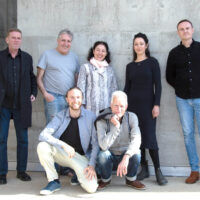What else does it take to escape the trap of stereotype? A critical extension to the article Hypermoralism Kills Freedom, also published today.
In the previous article, Alexander Grau asked whether we are dominated today by a collective, freedom-restricting moralism and whether all this political correctness means that we are facing a modern form of inquisition. He spoke of “networks that have the power to exclude individuals and groups from the discourse” and deplored a (hyper-)moralism that is mere ideology without a supporting thought structure.
People may think they are enlightened and yet spreading fear has become a popular form of reasoning and sensationalism a replacement for forward-looking policies. It is true: there are daily reports on extreme forms of protest causing annoying obstructions. Genderization, aiming to gain equality for women, is seen as excessive. But the discrimination of women, people of color and minorities can no longer simply be ignored. The growing global crises clearly and unrelentingly reveal structural imbalances, showing how societies around the globe are permeated, at every level, by hierarchical power mechanisms that feed on discrimination. Those at the top are seen as valuable achievers, those at the bottom are worth less. Words like “European, white, and educated” clearly evoke very different associations from “African, black, and poor.” Public life has long been impinging on personal life. Resistance makes itself felt, movement stirs. Attempts to defend one’s own security and repel those who think differently are growing louder, making the symptoms worse and leading to further hardening. Noise and hype superimpose the actual problems: climate change, racism, poverty, social participation, the pandemic etc. Trying to overcome the stimulus-response pattern, the exaggerations and the deeply harmful creation of images of enemies is hard work and requires a rich and diversified discourse on underlying causes and on what might be missing, given that so many sores are reopening almost simultaneously, causing a considerable degree of uncertainty. Contemplating the words from the Gospel, “Think new thoughts, open your mind” seems more relevant than ever.
What is going on?
Looking at the agitation in the “un-social” media or at those who glue their hands to the road to force climate protection, we realize how personal intentions directly affect public life. Know-it-all attitudes, ignorance, and, not least, fear and claims of surveillance govern public life and paralyze personal relations, as one could observe during the pandemic. Neither side is usually aware of the harm its self-opinionatedness is causing. The actual issue remains hidden, unobserved, or superimposed by ill-informed judgments and allegations about others. In addition, there is the human tendency to reject or even hate anything that seems threatening or uncomfortable, anything that points to one’s own weaknesses, inabilities, and shortcomings. Anthroposophically speaking, there seems to be a growing inner conflict that affects individual people in different ways and that asks for a life-affirming worldview and a life-enhancing view of the human being. In other words: Will the Intellectual Soul, which tends to boost our ego whilst leading to isolation and linear thinking, be able to find the way to a Consciousness Soul that consciously connects worlds? Or will the Sentient Soul, which feeds on habits and drives, dominate our actions and omissions? “Up or down?” is the question of freedom addressed to the human soul whose inner essence is an ‘I’ that is warmly devoted to life and imbued with spirit. No system, membership or societal status will make the difference, but the individual interest in and distinct contribution to the “world” that surrounds each of us in a different way. “All true life is encounter.”1
The following statement by Rudolf Steiner may be inspiring here: “Reality emerges when being and appearance converge.” Do beings experience and recognize other beings? Does reality arise from relationships? Being and appearance experience and influence each other. From a spiritual point of view the sense world is no ready-made reality but a seeming reality “to which first needs to be added what we bring to it, what lights up in each of us and what we then develop.”2 So, the full reality only emerges when our conscious (self-developed) humanity is added.
Recitatif
I would like to recommend two books that deal with the issues described in multi-layered ways. Both approach the current situation differently from Alexander Grau. One is the short story Recitatif3 by Toni Morrison, one of the most important representatives of Afro-American literature. In 1993 Toni Morrison was the first Afro-American author to be awarded the Nobel Prize in literature. She wrote novels, taught at universities and is the author of an equally commendable collection of essays (The Source of Self Regard). Recitatif (1983) is her only short story. It tells the story of two girls whose mothers have sent them to a children’s shelter for different reasons. One of the mothers is sick, while the other, the story’s first-person narrator, “danced all night.” Both girls feel they have been disposed of and sent to the wrong place for they are not “real orphans.” They also have to share a room with another girl of a different skin color. To begin with, the two don’t like each other but they have to stick together and gradually become friends who keep meeting again and again in later life, getting closer or moving away from each other, depending on the individual meeting. We don’t find out which of the girls is which race, which of them comes from a wealthy or poor, religious, educated, or uneducated home. The story’s language (its ‘how’) is masterfully precise and at the same time vague and suggestive. The story is touching and tells of their encounters, situations, and the social changes around them and what effect these changes have. As the reader, one immediately starts looking for outer categories that would make it possible to guess the skin color or social status of each of them. But as soon as one thinks one has discovered a particular give-away feature it is called into question again. We are led back to ourselves. Our own stereotypical thinking moves to and fro between compassion with the one or the other, becoming ever more humane, the “flowing experiences of expression” touching us much more deeply than preconceived categories. The philosopher Ernst Cassirer writes that, “Apprehending expression comes long before the knowledge of things.”4 Zadie Smith unlocks and deepens this in her introduction.
Newly negotiated boundaries
Emilia Roig, born 1983, takes a different approach in her book Why We Matter5. She is the founder and director of the Center for Intersectional Justice (CIJ) in Berlin and gained her doctorate at Humboldt University in Berlin and at Sciences Po Lyon. She lectures in Germany, France and the United States on questions of intersectionality, critical race theory, postcolonial studies as well as international and European law. In this impressive, committed, and multifaceted book she tells us that feminism, rather than being a mere fad, needs to be taken seriously; that feminism is not, as is often assumed, misandry, but tries to liberate in a very thorough and politically responsible manner the way we value others from accidental external facets such as gender, skin color, education or social status. Intersectionalism is a field of research that studies how hierarchizing allocations based on status, assumptions and external features overlap and often influence how we judge each other unconsciously and by force of cultural habits. This is a reflection of the social question which is further deviated from healing endeavors as a result of exaggerations and the growing lack of mutual understanding and consideration. Emilia Roig argues that we can only overcome this if we begin “to see things that, for a long time, we did not want to see.” She says that “The boundaries of normality keep being newly negotiated and defined. However, the foundation of oppression has so far remained unchanged.” This brings us back to the question of the worldview, which is a view of human beings: their thinking, feeling, and doing.
Are we becoming more willing and able to look at the mechanisms of oppression in everyday life and at their structural causes from the perspective of those who are affected by them? Based on her personal experience and that of her family who migrated to France, Emilia Roig uncovers patterns of adaptation, mutual contempt, and incivility that not only women, Black people, minorities, but also men are exposed to within the dominant capitalist meritocracy. She advocates radical solidarity and a “leave no one behind” approach and pleads for a self-awareness that is granted to all people without exception and that is non-exclusive. The writer Kübra Gümüşay, whose book Speaking and Being I would also like to recommend, refers to Why We Matter as “both radical and gentle. […] a healing and inspiring gift.”
To summarize: how different would being human — and in a wider sense all coexistence with everything that lives and wants to live6 — be if there was more interest in freedom. For then we could welcome all that is different; we could learn to grow beyond ourselves by staying true to ourselves, and to recognize the otherness, which is alien at first, as belonging to us.
Translation Margot M. Saar
Image Kaleidoscope. Photo: Sofia Lismont
Footnotes
- Martin Buber, Ich und Du. Verlag Lambert Schneider, 1983, p. 18. [Martin Buber, I and Thou. Simon & Schuster, 1971].
- Rudolf Steiner, GA 255b, November 16, 1919.
- Toni Morrison, Rezitatif. With an introduction by Zadie Smith. Chatto Windus, 2022.
- Ernst A. Cassirer, from: Philosophie der Symbolischen Formen. Cited in: Johannes Kiersch, Vom Land aufs Meer. Steiners Esoterik in verändertem Umfeld. Verlag Freies Geistesleben, 2008, p. 40. [Ernst A. Cassirer, The Philosophy of Symbolic Forms. Routledge, 2020].
- Emilia Roig, Why We Matter. Das Ende der Unterdrückung. Aufbau-Verlag, 2020. [No English translation available yet].
- Albert Schweitzer (1875–1965): “Reverence for life”, “I am life that wants to live surrounded by life that wants to live”; “We are truly moral only when we obey the compulsion to help all life we are able to help, and shrink from harming anything that lives.” Cited from Albert Schweitzer, Aus meinem Leben und Denken. TB, 1995. [Albert Schweitzer, Out of My Life and Thought. John Hopkins University Press 2009).










I keep remembering Steiner’s emphasis on positivity. Although we should notice the bad things, if we work on fostering the good things in others—without dwelling too much on the injustices, and on controversial subjects which can result in argument tones instead of calm discussions—I think we can have more progress. Yes, we should start from our love in general for everyone in this world. Yes, we should start from an attitude of: all lives matter. Yes, we should also start from a view of equal treatment for the genders. These starts do not leave out anyone; to be treated unequally, or unjustly. I really appreciate the statement recently, by one of our friends—in this periodical; that if one criticises, one should have the feelings of the one(s) criticized in mind. We can criticize with love; similar to when we criticize or guide a child; in order to help. A child should not erroneously turn back to a loving, guiding adult; and say: “Don’t judge me.” Steiner’s emphasis on positivity, is there for a really good reason. For one thing, it saves much divisiveness among people. It fosters love. We don’t condone what is wrong; and we need to be aware of it as well as being aware of what is right and good, and beautiful. But it’s so crucial to concentrate on what our Representative of The Human Being emphasized so much: “Love one another; as I have loved you.” “Continue in my love.”